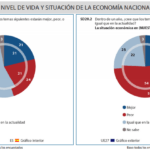European institutions and agencies are acting decisively to mitigate the socio-economic impact in the European Union of the crisis caused by the coronavirus.
Below we highlight what the European institutions have been working on to date:
Next Meetings
| INSTITUTIONS | MEETINGS | |
| DATES | ||
| European Council |
04.10.2021 |
|
| European Council |
05.10.21 |
|
September 16, European Parliament: Tax information sharing must improve significantly
In a resolution adopted on Thursday MEPs say that much more can be achieved through sharing tax information if member states and the Commission step up their game.
Adopting the resolution authored by Sven Giegold (Greens, DE), which evaluates the last 10 years of structured exchange of tax information, MEPs conclude that numerous shortcomings are down to insufficient implementation of the existing provisions and that the Commission should also use the next update to the rules for a comprehensive overhaul, contrary to the piecmeal approach it has adopted over the last decade.
Must do better
The resolution says that one of the main problems is that national authorities are not applying the existing rules sufficiently enough. Too little use is being made of the information exchanged, there is too little information exchanged on certain types of income and assets, and the lack of proper implementation of anti money-laundering rules harms the effectiveness of the exchange of tax information. The resolution also says that the quality of the information exchanged is below par and the control of such quality must be better ensured.
The Commission also comes under fire from MEPs. As the watchdog of proper implementation of EU law, it is criticised for not launching any infringement proceedings against any member state for incorrect implementation of this directive.
Looking ahead
Looking ahead, the resolution also provides some pointers for what the next priorities should be.
Information should be exchanged more consistently and with a better eye towards quality. Also, it should become obligatory to exchange more types of information on income and assets, coupled with a further requirement for the beneficial owners to be divulged. National authorities should also be required to systematically check the information provided by financial institutions and levy fines when information is incorrect. This increase in work for national authorities will necessitate increases in the financial and personnel capacities of the tax administrations, the resolution adds.
The Commission is called upon to use the next update to the directive not only to make small additions but to also close the existing loopholes and harmonise data collecting and sharing standards. As a matter of urgency the resolution also calls on the Commission to immediately initiate infringement proceedings against member states which fail to implement the directive correctly.
Little cooperation
The resolution criticises the Commission and all Member States except Sweden and Finland for having been uncooperative with the European Parliament during the exercise of evaluating the effect of the directive. Notably, they refused to give access to crucial information on the implementation of the Directive. The resolution therefore invites capitals and the Commission to be more cooperative in the future in the interest of all citizens and taxpayers.
Vote result
The resolution was adopted with 561 votes in favour, 12 against and 116 abstentions.
More information
September 10, European Council: Informal meeting of economic and financial affairs ministers
During the Slovenian Presidency of the Council of the European Union, the Ministry of Finance organised an Informal Meeting of Ministers for Economic and Financial Affairs.
This is a traditional meeting of ministers for economic and financial affairs, where the ministers are joined by the governors of national central banks and other participants to exchange views on ongoing affairs related to the economic and financial fields.
On the first day of the meeting, 10 September, two working sessions were held. The first session will be dedicated to the regulation of the financial sector and the balance between financial stability and sustainable financing of the economy. The second working session focused on the options for channeling IMF special drawing rights to vulnerable countries. Central bank governors also joined the ministers on the first day of the meeting.
The second day of the meeting, 11 September, also features two working sessions. At the first working session, the ministers discussed simulations of fiscal scenarios to ensure a resilient recovery and sufficient space for future investment. The second working session were devoted to a discussion on the future of taxation.
More information
European Council: Press Release
September 10, Eurogroup meeting
Economic situation in the euro area
The director of the European Centre for Disease Control (ECDC), Andrea Ammon, updated the Eurogroup on the COVID-19 epidemiological situation. Ministers followed up with a discussion on the economic situation and exchanged views with the chair of the European Parliament’s committee on economic and monetary affairs, Irene Tinagli.
Euro area: managing the uneven impact of COVID-19
The Eurogroup discussed the lessons learned from the uneven impact of COVID-19 across economic sectors and regions. Ministers focused on the implications of the pandemic in the medium-term in terms of policy actions necessary to avoid divergences.
The discussion was supported by a note prepared by the European Commission on the issue of convergence in the euro area.
Corporate solvency and adjustment capacity in the euro area in the recovery period
Following their agreement in previous meetings to monitor solvency and restructuring needs, ministers discussed the solvency situation of the corporate sector and potential measures to facilitate the corporate restructuring and economic adjustment in the euro area in the post-COVID recovery period.
Other business
The European Central Bank (ECB) briefed the Eurogroup on the decision of the ECB Governing Council of July 2021 to launch the investigation phase of the digital euro project.
More information
European Council: Press Release
September 10, European Parliament: EP survey: EU recovery funds should only go to countries respecting Rule of Law
In the latest public opinion survey, four out of five respondents (81%) say the EU should only provide funds to Member States that respect the rule of law and democratic values.
Parliament President David Sassoli said: “The European Parliament has been clear that EU Recovery Funds should not go to governments that do not respect core democratic values or uphold the Rule of Law. This survey confirms that an overwhelming majority of EU citizens agree. If you consistently undermine EU values, you should not expect EU funds.
A Eurobarometer survey published today by the European Parliament ahead of the State of the European Union event on 15 September shows clear public support for transparency and effective control of EU funds disbursed in the framework of the NextGenerationEU programme. According to the survey, 53% of citizens fully agree that there must be effective control, with a further 32% tending to agree. Only 8% of respondents on EU average do not share this opinion. This is a position shared by the European Parliament, currently closely assessing the national plans with the Commission to ensure these funds are used in line with the objectives of a greener, more digital and resilient European society.
Citizens assess the premise of the European Union’s 800 billion Euro recovery programme positively: Three out of five citizens (60%) believe the NextGenerationEU projects will help their country to overcome the economic and social damage brought about by the coronavirus pandemic. 59% of citizens also say that the programme will help their country to be better prepared for future challenges. In this light, the survey also shows 53% of European citizens have a positive image of the European Union, with only 19% having a fairly or very negative image.
More information
European Parliament: Press Release
September 6, European Council: Informal video conference of economy and finance ministers
Ministers took stock of the economic recovery in Europe. They held a discussion on the Council implementing decisions on the approval of national recovery and resilience plans for Czechia and Ireland and welcomed the Commission’s positive assessment of both. The decisions will be adopted via written procedure by 8 September, allowing both countries to soon start implementing their planned reforms and investments. Czechia will also be able to receive the requested 13% pre-financing.
Once the decision on the Czech and Irish plans are formally approved this week, 18 national plans will already have been adopted. Today, ministers also exchanged views on the implementation of the Recovery and Resilience Facility (RRF). The facility, worth €672.5 billion, is the key instrument of the Next Generation EU recovery package designed to help Europe emerge stronger from the COVID-19 pandemic. To receive support from the RRF, the member states must submit their recovery and resilience plans and have them assessed and approved.
More information
European Council: Press Release
September 2, European Parliament: Recovery and Resilience Dialogue – Focus on the Recovery and Resilience Facility
The Budgets and Economic and Monetary Affairs Committees held their third hearing with the European Commission’s Executive Vice-President Valdis Dombrovskis and Commissioner for the Economy Paolo Gentiloni on the progress being made under the Recovery and Resilience Facility – the EU’s main tool to mitigate the economic and social impact of the COVID-19 pandemic.
More information
European Parliament: Press Release
September 1, European Parliament: ECON activities in regard to COVID-19
The spread of the COVID-19 virus represents a dramatic risk for the health and lives of our citizens but will also lead to unprecedented shocks for the economy and employment in Europe. The COVID-19 outbreak requires rapid responses from Member States and immediate and innovative joint action of the European institutions and Member States to counter another deep and protracted economic crisis in the aftermath of the health pandemic.
The European Parliament and in particularly the Committee on Economic and Monetary Affairs are at the forefront of the debate, actively partaking in the elaboration of European policies and solutions to prevent a deep and protracted economic crisis and to lay down foundations for the Europe’s long term recovery.
More information
European Parliament: Press Release







Leave a Reply